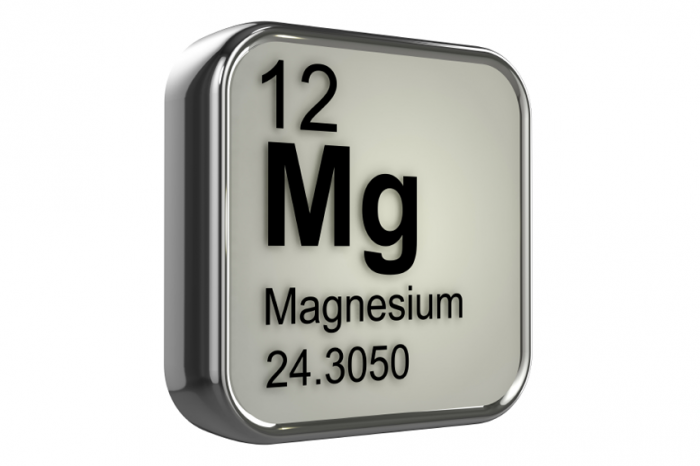Magnesium, Why do you need it?

Considering all of the important roles that magnesium plays in the body – and the fact that a magnesium deficiency is one of the leading nutrient deficiencies in adults, with an estimated 80 percent being deficient in this vital mineral – it’s a good idea to consider taking magnesium supplements regularly and eating magnesium-rich foods.
The amount of research regarding the benefits of magnesium and the need to take magnesium supplements to counteract a deficiency is staggering.
For many people, a magnesium deficiency causes noticeable negative symptoms – including muscle aches or spasms, poor digestion, anxiety, and trouble sleeping. Yet, magnesium deficiency is often overlooked and rarely tested. Therefore, magnesium may be one of the most underutilized but most necessary supplements there is.
Magnesium may not be the most present mineral in our body in terms of its quantity, but it’s certainly one of the most crucial to overall health. It’s actually involved in over 300 biochemical functions in the body, such as regulating heartbeat rhythms and helping neurotransmitter functions.
The Need for Magnesium Supplements
A magnesium deficiency can cause significant symptoms. Some of the most prominent include: (1)
-
hypertension and cardiovascular disease
-
peroxynitrite damage that can lead to migraine headaches, multiple sclerosis, glaucoma or Alzheimer’s disease
-
nutrient deficiencies including vitamin K, vitamin B1, calcium and potassium
-
restless leg syndrome
-
worsened PMS symptoms
-
behavioral disorders and mood swings
-
insomnia and trouble sleeping
-
recurrent bacterial or fungal infections due to low levels of nitric oxide or a depressed immune system
-
tooth cavities
-
muscle weakness and cramps
-
impotence
Why is magnesium deficiency so common? A few factors are at play: soil depletion that lowers the amount of magnesium present in crops; digestive disorders that lead to malabsorption of magnesium and other minerals in the gut; high rates of prescription medication and antibiotic use that damages the digestive tract to the point that magnesium cannot be absorbed and properly utilized from foods.
The body loses stores of magnesium every day from normal functions such as muscle movement, heartbeat and hormone production. Although we only need small amounts of magnesium relative to other nutrients, we must regularly replenish our stores either from foods or magnesium supplements in order to prevent deficiency symptoms.
The kidneys primarily control levels of magnesium within the body and excrete magnesium into the urine each day, which is one reason why urinary excretion is reduced when magnesium and other electrolyte statuses are low. Magnesium is actually the least abundant serum electrolyte in the body, but it’s still extremely important for your metabolism, enzyme function, energy production, and for balancing nitric oxide (NO) in the body.
Signs of Magnesium Deficiency
More than 80% of the population suffers from magnesium deficiency.
Magnesium deficiency can have devastating effects on the body if not caught early on.
Knowing the signs early will allow you to combat any inadequacies by introducing more magnesium-rich foods into your diet or by taking a supplement.
Here are some common symptoms of magnesium deficiency (1):
-
Respiratory issues
-
Fatigue
-
Calcium deficiency
-
Nausea, dizziness, and fatigue
-
Type 2 diabetes
-
Poor memory functions or confusion
-
Anxiety
-
Muscle cramping
-
Irregular heartbeat
-
Involuntary eye movements or tremors
-
Irritability
-
Loss of appetite
-
Panic attacks
-
Heart disease
-
Bowel disease
-
Blood clots
-
Asthma